Discover, Learn, Contribute, Connect

How to Say “Safe Travels” in Spanish: Formal and Informal Ways
When traveling to a Spanish-speaking country, it’s always helpful to have a few essential phrases under your belt. One such phrase is “safe travels,” which allows you to express well wishes to your friends, family, or acquaintances before they embark on a journey. In Spanish, you can convey this sentiment in both formal and informal ways, depending on the context and relationship with the person you’re addressing. Let’s explore how to say “safe travels” in Spanish, along with some useful tips, examples, and regional variations.
Table of Contents
Formal Ways to Say “Safe Travels” in Spanish
When addressing someone formally or in a professional context, it’s important to use the appropriate level of language. Here are some formal ways to wish someone safe travels:
1. Que tengas un buen viaje
Example: María, que tengas un buen viaje a Madrid. Llámame cuando llegues. (María, have a good trip to Madrid. Call me when you arrive.)
2. Que tenga un feliz viaje
Example: Señor González, que tenga un feliz viaje a Buenos Aires. Espero que disfrute su estadía. (Mr. González, have a happy trip to Buenos Aires. I hope you enjoy your stay.)
Informal Ways to Say “Safe Travels” in Spanish
When speaking to friends, family, or anyone you’re on familiar terms with, you can use these casual expressions to wish them safe travels:
1. Que te vaya bien en el viaje
Example: Juan, que te vaya bien en el viaje a la playa. Tómate muchas fotos. (Juan, have a good trip to the beach. Take lots of photos.)
2. Que lo pases bien en el viaje
Example: Carmen, que lo pases bien en el viaje a la montaña. Disfruta de la naturaleza. (Carmen, have a great trip to the mountains. Enjoy nature.)
Tips for Saying “Safe Travels” in Spanish
While knowing the basic phrases is helpful, there are some additional tips you should keep in mind when wishing someone safe travels in Spanish:
1. Consider the Context
Make sure to adapt your phrase depending on the situation. If you’re addressing a group of people, use plural forms of the expressions. Also, take into account the length and nature of the trip.
2. Add Personal Touches
When wishing someone safe travels, it’s nice to add personal touches to show you care. For example, mention a specific place they’re visiting or suggest they try a local delicacy.
3. Use Positive Adjectives
Include positive adjectives to emphasize your well wishes. Words such as “buen” (good), “feliz” (happy), or “maravilloso” (wonderful) can enhance your message.
Regional Variations
While the phrases mentioned earlier are widely understood throughout the Spanish-speaking world, there may be some regional variations:
1. In Spain
In Spain, it’s common to use the phrase “que tengas un buen viaje” in informal settings, but in formal situations, you may also hear “que tenga un buen viaje” or “que vaya todo bien” (may everything go well).
2. In Latin America
In Latin America, the expressions mentioned earlier are widely used. However, you may also hear “que tengas un viaje seguro” (have a safe trip) or “que tengas un buen vuelo” (have a good flight) when specifically referring to air travel.
Now that you’re equipped with various ways to say “safe travels” in Spanish, you’ll be able to express your well wishes to others confidently. Remember to consider the context and adapt the expression accordingly, whether you’re speaking formally or informally. Adding personal touches and positive adjectives can make your message even more meaningful. Keep in mind that while the phrases covered are widely understood, there may be regional variations. So, go ahead and use these phrases to wish your loved ones a wonderful journey!
Related Guides:
- Guide to Saying “Safe Travels” in Spanish
- Tips for Saying “Safe Travels” in Korean
- Saying “Safe Travels” in Brazil
- Safe Travels: How to Say It in French
- Tips and Examples: How to Say “Safe Travels” in Ireland
- Guide: How to Say “Safe Travels” in Polish
- Safe Travels in Swiss: Formal and Informal Ways
- Guide: How to Say “Safe Travels” in Yiddish
About The Author
Riley Isaac
Spanish to Go
How To Say Have A Good Trip In Spanish
How to say “have a good trip” in spanish, introduction, 1. ¡buen viaje, 2. ¡que tengas un buen viaje, 3. ¡que disfrutes tu viaje, additional travel phrases.
Ariana Marie Data18
Practice your Spanish skills with basic quizzes. Test yourself and improve your knowledge with free questions. Enjoy basic quizzes with illustrations and more.
Basic Quizzes
Start learning basic Spanish vocabulary with words and phrases, with pictures, videos, and audio. Study basic terms in Spanish like a professional.
Basic Spanish
What are the most popular conjugated verbs in Spanish? Learn the conjugation of Spanish verbs. Study Spanish verb tenses with online lessons and examples. Find out which are the most popular verbs.
Conjugated Verbs in Spanish
Do you think you know about conjugations in Spanish? Practice your Spanish skills with conjugation quizzes. Improve your knowledge with free lessons and quizzes.
Conjugation Quizzes
Learn the Spanish words and phrases with flipbooks. Flip to learn the basic Spanish vocabulary online for free. Study the Spanish language by using a flipbook, choose your favorite ebooks, and flip.
Learn basic Spanish with flashcards. Study Spanish online with helpful lessons and articles including pictures, audio, and more.
Spanish Flashcards
Learn basic Spanish verbs with flip cards. Touch and flip. Study Spanish online with helpful lessons and articles including pictures, audio, and more.
Spanish Flip Cards
Learn Spanish for advanced level. Start learning Spanish words and phrases with free online lessons, and helpful articles. Study some Spanish terms and their rules. Learn the second language like a pro.
Spanish for Advanced
Spanish words that start with . Start learning Spanish words and phrases with online lessons, and helpful articles. Study some Spanish terms and their rules. Learn the second language like a pro.
Spanish Words that Start with
Learn Spanish for intermediate level. Study the Spanish grammar rulers. Enjoy helpful tips about how to use the Spanish grammar.
Spanish for Intermediate
Leave a reply.
You must be logged in to post a comment.
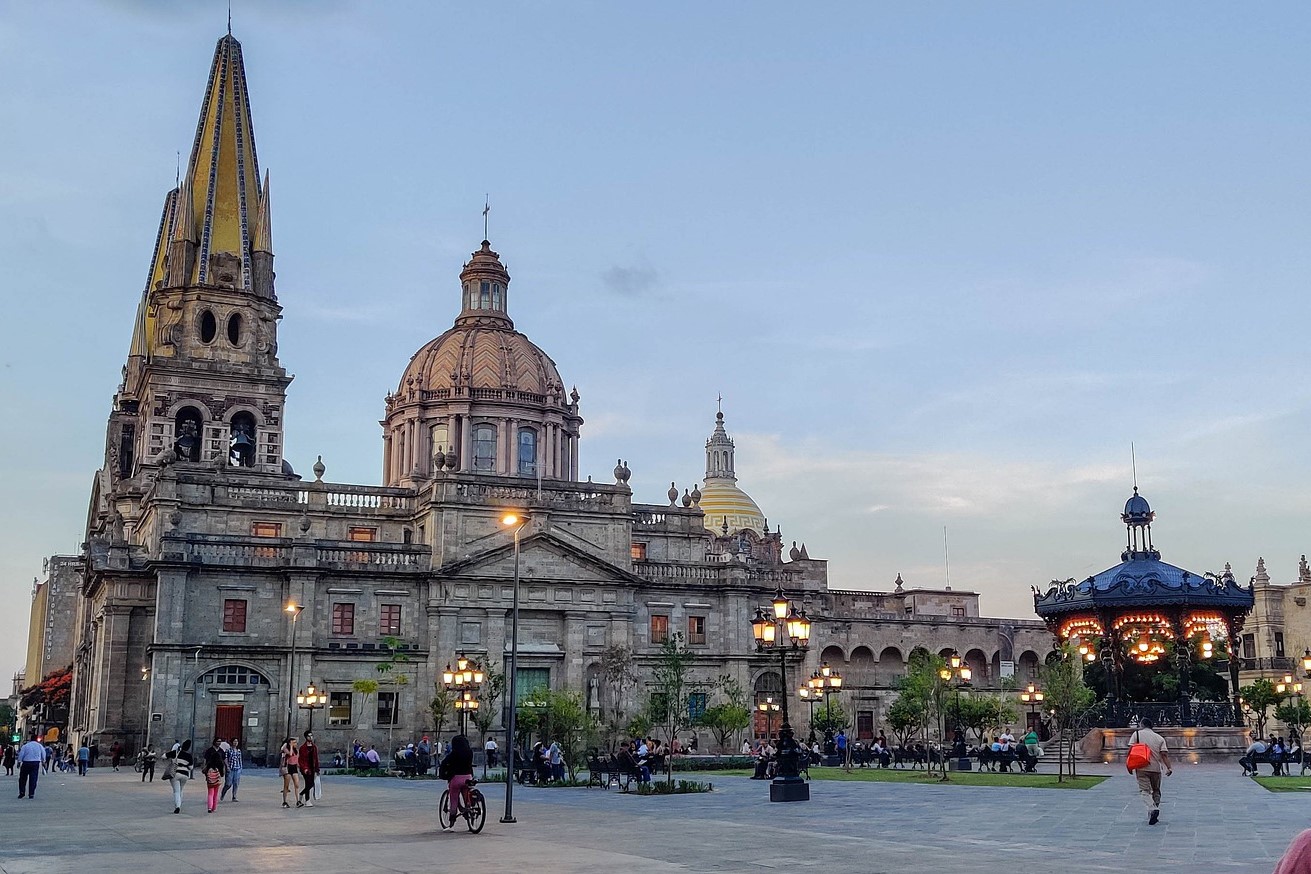
¡Buen viaje! Have a Great Trip! Travel Phrases in Spanish
- Post author: Language Garage
- Post published: September 2, 2020
- Post category: Spanish / Vocabulary
In this post we’ll look at a lot of Spanish vocabulary and expressions that will come in handy when you travel. Let’s start with the basics.
Mi maleta My Suitcase
Before you travel, you of course need to pack. So let’s start there.
- la maleta suitcase
- Tengo que hacer mi maleta/ empacar. I need to pack my suitcase.
- Mi maleta está pesada/ liviana/ llena/ vacía. My suitcase is heavy/ light/ full/ empty.
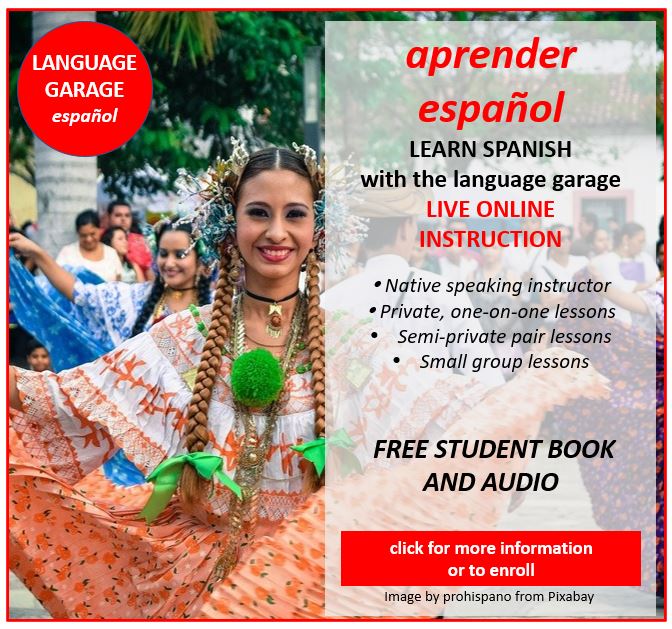
- No me cabe la ropa en la maleta. My clothes don’t fit in my suitcase.
- Necesito otro bolso/otra maleta. I need another bag/suitcase.
En el aeropuerto. At the Airport
If you’re traveling, you’re probably going to leave from and arrive at an airport.
- boleto de avión/ billete de avión, pase/ tarjeta de abordar/ abordaje, pasaporte, vuelo plane ticket, boarding pass, passport, flight
- llegadas, salidas, puertas, recogida de equipaje arrivals, departures, gate, baggage claim
- control de pasaportes/aduana passport control, customs
- Tengo que facturar mi equipaje. I need to check my luggage.
- Llevo un bolso de mano. I have a carry-on bag.
- ¿A qué hora sale el vuelo? When does the flight leave?
- Hay una fila larga en el control de seguridad. There’s a long line at security.
- Vamos a abordar en diez minutos. We’re boarding in ten minutes.
- asiento junto a la ventanilla/ de ventana, asiento de pasillo, asiento del medio window seat, aisle seat, middle seat
- piloto, azafato/a / aeromozo/a pilot, flight attendant
- Abróchense/Ajústense los cinturones, por favor. Please fasten your seatbelt.
- Apaguen sus celulares. Please turn off your cell phone.
- ¿Cuánto dura el vuelo? How long is the flight?
- Vamos a aterrizar en diez minutos. We’re landing in ten minutes.
- Tenemos que pasar por aduana y control de pasaportes. We need to go through customs and passport control.
- ¿Dónde está el área de recogida de equipaje? Where’s the baggage claim area?
- ¿Dónde están los taxis? Where are the taxis?
- ¿Hay algún bus/tren para la ciudad? Is there a train/bus to the city?
- Tengo que cambiar dinero/divisas. I need to exchange money.
En el hotel At the Hotel
You’ve finally arrived, so let’s get you settled in your hotel room.
- ¿Dónde está el hotel? Where is the hotel?
- Quisiera registrarme. I ’ d like to check in.
- Tengo una reservación/reserva. Mi nombre es… I have a reservation. My name is…
- ¿Dónde está el ascensor/elevador? Where ’ s the elevator?
- ¿En qué piso está mi habitación? What floor is my room on?
- la habitación, la cama, el baño, la ventana, la televisión, el teléfono room, bed, bathroom, window, television, phone
- las sábanas, la cobija/manta, la almohada, la bata de baño sheets, blanket, pillow, bathrobe
- ¿Hay servicio a la habitación? Is there room service?
- ¿Podría darme una cobija/manta adicional? Can I have an extra blanket?
- ¿Podría facilitarme una plancha y una mesa de planchar? Can I have an iron and an ironing board?
- ¿Podría facilitarme un secador (de pelo)? Can I have a hair-dryer?
- ¿Me podrían lavar la ropa? Can I have my clothes washed?
- La calefacción no está funcionando. The heat isn ’ t working.
- El aire acondicionado no está funcionando. The air conditioning isn ’ t working.
- ¿Podrían limpiar mi habitación, por favor? Please clean my room.
- ¿Podría cambiarme de habitación a / una más grande / una más tranquila? Can I have another room / a bigger room / a quieter room?
- ¿Dónde desayunamos? Where do we eat breakfast?
- ¿Hay un salón de ejercicios/gimnasio? Is there an exercise room?
- ¿Hay piscina? Is there a pool?
- ¿Hay bar? Is there a bar?
- ¿Hay un restaurante? Is there a restaurant?
- ¿Hay wifi? Do you have WiFi?
- ¿Cuál es la clave del wifi? What’s the WiFi password?
- ¿A qué hora debo desocupar la habitación? What time do I need to leave the room?
- Quisiera desocupar la habitación/ hacer el check-out. I would like to check out.
- ¿Podría pedirme un taxi? Can you call a taxi for me?
Tengo hambre. I’m hungry
When you’re traveling, it’s important to know some basic terms for food, drink, and how to navigate a nice meal at a local restaurant. Check out this post , which covers all of that!
- ¿Dónde está la estación de tren? Where is the train station?
Once you’re settled into your hotel, you probably want to know where things are in case you need to pop out and buy something.
- ¿Hay alguna tienda cerca? Is there a convenience store nearby?
- ¿Hay alguna farmacia cerca? Is there a pharmacy nearby?
- ¿Hay algún supermercado cerca? Is there a supermarket nearby?
- ¿Hay algún restaurante cerca? Is there a good restaurant nearby?
- ¿Hay algún hospital/ consultorio médico cerca? Is there a hospital/ doctor’s office nearby?
- ¿Hay alguna librería cerca? Is there a bookstore nearby?
- ¿Hay alguna tienda de ropa cerca? Is there a clothing store nearby?
- ¿Hay alguna zapatería cerca? Is there a shoe store nearby?
- ¿Dónde está la estación de metro? Where is the subway station?
- ¿Dónde está la parada de autobús? Where is the bus station?
Está al lado del hotel. It’s next to the hotel .
Of course, if you ask where things are, you’ll need some basic vocabulary related to directions and getting around.
- ¿Está cerca? Is it nearby?
- ¿Está lejos de aquí? Is it far from here?
- ¿Puedo llegar a pie? Can I walk there?
- Está cerca. It ’ s nearby.
- Está lejos de aquí. It ’ s far from here.
- Está al otro lado de la calle. It ’ s across the street.
- Está al lado del hotel. It ’ s next to the hotel.
- Cruza la calle. Cross the street.
- Cruza el puente. Cross the bridge.
- Gira a la derecha. Turn right.
- Gira a la izquierda. Turn left.
- Sigue todo recto/ derecho. Go straight ahead.
- Está al lado de la estación de tren. It ’ s next to the train station.
- Está cerca de la estación de tren. It ’ s near the train station.
- Está detrás de la estación de tren. It ’ s behind the train station.
- Está a la izquierda de la estación de tren. It ’ s the left of the train station.
- Está a la derecha de la estación de tren. It ’ s to the right of the train station.
- Está enfrente de la estación de tren. It ’ s in front of the train station.
Vamos a visitar lugares. Let’s go sightseeing.
- Queremos ir a visitar/ conocer lugares. We want to go sightseeing.
- ¿Tienes un mapa de la ciudad? Do you have a map of the city?
- ¿Hay algún tour en autobús? Is there a tour bus?
- ¿Hay algún guía turístico? Is there a tour guide?
- Queremos ir al museo. We want to go to a museum.
- Queremos visitar una catedral/ un templo/ una mezquita. We want to visit a cathedral/ temple/ mosque.
- Queremos ir al parque. We want to go to the park.
- Queremos visitar una galería de arte. We want to visit an art gallery.
- Queremos ver una obra de teatro/ ir a la opera/ ir a un concierto. We want to see a play/ opera/ concert.
- Queremos visitar un castillo. We want to visit a castle.
- Queremos visitar un monumento. We want to visit a monument.
- ¿Qué lugares históricos debemos visitar? Which historical sites should we visit?
- ¿Qué lugares culturales debemos visitar? Which cultural sites should we visit?
- ¿Cuál es el mejor barrio/ la mejor zona para ir de compras? Where ’ s the best neighborhood for shopping?
- ¿Cuál es el mejor barrio/ la mejor zona para salir de noche? Where ’ s the best neighborhood for nightlife?
- Queremos ir a un bar/ una discoteca. We want to go to a bar/nightclub.
- ¿Dónde hay una buena vista de la ciudad? Where is there a good view of the city?
- Queremos ir a mercado artesanal. We want to visit a market.
- ¿Hay algún baño público cerca? Is there a public bathroom nearby?
- ¿Dónde está el baño? Where is the bathroom?
- ¿Dónde está la salida/entrada? Where is the exit/entrance?
- ¿Cuánto cuesta un tour? How much does a tour cost?
¿A dónde va este tren? Where does this train go?
You probably want to see some sights outside of the city, and for that you’ll need to get around.
- Queremos ir a Guadalajara. We want to go to Guadalajara.
- Quisiera comprar un boleto (un billete) de autobús/ tren para Guadalajara. I’d like a bus ticket/ train ticket to Guadalajara.
- ¿Cuándo cuesta el boleto/ billete/ pasaje? How much does a ticket cost?
- Quiero un boleto/ billete/ pasaje solo de ida. I want a one-way ticket.
- Quiero un boleto/ billete/ pasaje de ida y vuelta. I want a round-trip ticket.
- ¿A qué hora sale el tren/ autobús? When does the train/bus leave?
- ¿A qué hora llega el tren/ autobús? When does the train/bus arrive?
- ¿Este tren/autobús va para Guadalajara? Does this bus/train go to Guadalajara?
- ¿Cuánto se tarda en ir a Guadalajara? How long does it take to go to Guadalajara?
- ¿Dónde puedo alquilar un carro/coche/ auto? Where can I rent a car?
- ¿Cómo puedo llegar a la playa/ las montañas/ al parque nacional? How can I get to the beach/ mountains/ national park?
- ¿Cuánto cuesta? How much does it cost?
When you’re traveling, you probably need to by all sorts of things. Let’s cover that vocabulary.
- ¿Dónde puedo comprar un mapa/ una botella de agua/ un café? Where can I buy a map/ a bottle of water/ a cup of coffee?
- ¿Dónde puedo comprar gafas de sol/ aspirinas/ crema solar? Where can I buy sunglasses/ aspirin/ sunscreen?
- ¿Dónde puedo comprar postales/ recuerdos (suvenires)? Where can I buy postcards/ souvenirs?
- ¿Dónde puedo comprar algo para comer/ beber? Where can I buy something to eat/ something to drink?
- ¿Podría escribir el precio, por favor? Please write the price.
- ¿Puedo pagar en efectivo? Can I pay by cash?
- ¿Puedo pagar con tarjeta de crédito? Can I pay by credit card?
- Es demasiado caro/costoso. That’s too expensive.
- ¿Tiene algo menos caro/costoso? Do you have something less expensive?
- ¿Podría mostrarme este/esta/esto, por favor? Can I see that, please?
- Me llevo este/esta/esto. I’ll take this/that.
- ¿Me lo/la podría probar? Can I try it on?

Learn Spanish with the Language Garage!
Interested in more Spanish? Check out our other posts on Spanish language, culture, and more. If you’re looking for convenient and affordable live Spanish lessons with a real teacher, visit The Language Garage. Our lessons are affordable and fun, and they’re given online in a virtual classroom, so it doesn’t matter where you live or work – we can come to you. We have flexible options, with a free trial so that you can decide if there’s a fit. Check us out!
Image by Kevin Alexandro Reyes Casillas from Pixabay
Please Share This Share this content
- Opens in a new window
You Might Also Like

L’été: Summer en français

읽는 것을 좋아해요. ilneun geos-eul joahaeyo. I love to read. Talking about books in Korean.
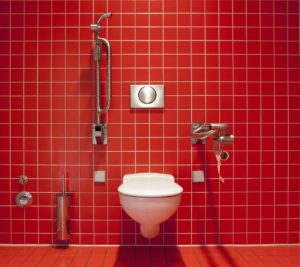
在浴室里 Zài yù shì lǐ: In the Bathroom in Chinese

Speak Languages Better
We value your privacy. We won't spam your wall with selfies.
To learn more see our Privacy Policy and Terms of Service .
Free Language Learning Tools
Free Audio Dictionary
- Have a good trip (Ten un buen viaje)
How to say "Have a good trip" in Spanish (Ten un buen viaje)
We have audio examples from both a male and female professional voice actor.
Spanish (Latin America)
Ten un buen viaje., have a good trip..
Practice saying this sentence
Female Voice
Spanish (spain), buen viaje., how to say "have a good trip" in other languages, more resources.
Basic Expressions
Most Common Phrases
Share us on social media:
- google+
Speechling Comprehensive User Guide Our Mission Speechling Scholarships Meet the Team White Paper Pricing Community
Spanish Blog French Blog English Blog German Blog Italian Blog Portuguese Blog Russian Blog Korean Blog Japanese Blog Chinese Blog
Free Dictation Practice Free Listening Comprehension Practice Free Vocabulary Flashcards Free Language Quiz Free Fill in the Blank Exercises Free Audio Dictionary All Tools
Social Links
Privacy Policy Terms of Service Speechling uses Flaticon for icons.
Speechling for Education Careers Affiliate Marketing Contact


A Useful Guide to Spanish Travel Phrases

Written by Diana Luciana
August 25, 2022.
Are you planning a long-awaited trip to a Spanish-speaking country? 🌎
Your trip can be so much more fun and meaningful if you know how to say travel in Spanish, and communicate with the locals—how many times have you missed out on a secret spot because you didn’t speak the language?—and find your way around with this guide to Spanish travel phrases and words. From getting to the airport to ordering food in Spanish at the restaurant, we got you covered.
How do you say travel in Spanish?
We put together a list of essential Spanish travel phrases, need-to-know vocabulary, and tips for traveling in Spanish. Keep in mind that you don’t need to speak Spanish fluently to get the most out of your trip and have meaningful interactions. A basic travel Spanish vocabulary will get you a long way, and the locals would definitely appreciate the effort. And when you don’t understand or aren’t sure of what’s being said, simply ask ¿Habla inglés? (Do you speak English?)
Key phrases in Spanish for travelers
Here are some key Spanish phrases and greetings you should know. You can use them in any situation (asking for directions in Spanish, asking questions in Spanish, meeting new people in Spanish, and so on.) It’s a mini Spanish 101 lesson:
Spanish greetings
- Buenos días — Good morning
- Buenas tardes — Good afternoon
- Buenas noches — Good evening
- ¿Cómo te llamas? — What’s your name?
- Me llamo… — My name is…
- Mucho gusto. Encantado — It’s a pleasure to meet you.
- ¿Cómo te va? / ¿Qué tal? / ¿Qué hay? — How’s it going?
- ¿Cómo estás? — How are you?
- Bien, gracias / Muy bien, gracia s — Good, thank you / Very well, thank you
- Por favor — Please
- Perdón / Lo siento — Sorry
- ¿Habla inglés? — Do you speak English?
- No hablo español. — I don’t speak Spanish.
- No entiendo bien el español. — I don’t understand Spanish well.
- ¿Tiene…? — Do you have…?
- ¿Entiende? — Do you understand?
- Yo entiendo / yo no entiendo — I understand / I don’t understand
- Hágame el favor de hablar más despacio. — Speak more slowly, please.
- Escríbalo, por favor. — Write it down, please.
Essential Spanish
- ¿Dónde está…? ¿Dónde están…? — Where is…? Where are…?
- ¿Por dónde se va a…? / ¿Cómo puedo llegar a…? — How do you go to…?
- ¿Dónde estamos aquí en el mapa? — Where are we on the map?
- ¿Está lejos? ¿Está por aquí? — Is it far away? Is it near here?
- Busco… — I’m looking for…
- ¿Me podría ayudar? — Can you help me?
- Estoy perdido (for men) / perdida (for women) . — I’m lost.
- ¿Hay alguien que hable inglés? — Is there anyone who speaks English?
- Disculpe / Con permiso / Perdóname — Excuse me
- ¿Quién? — Who?
- ¿Qué? — What?
- ¿Cuándo? — When?
- ¿Cómo? — How?
- ¿Cuánto? — How much?
- ¿Cuántos? — How many?
- ¿Por qué? — Why?
- ¿A qué hora? — What time?
- ¿Por cuánto tiempo? — How long?
- ¿Cada cuánto? — How often?
- Yo quiero / yo no quiero — I want / I don’t want
- Yo tengo / yo no tengo — I have / I don’t have
How to say airport in Spanish
Imagine yourself getting off the plane ( el avión )—new place, new language, new everything—ready to start your vacation. Even though English is widely spoken, knowing the basic Spanish travel vocabulary for airports and planes will make your trip easier. And you will start your vacation on the right foot, confident that you can find your way in any situation.
Essential travel vocabulary in Spanish for when you are at the airport ( el aeropuerto ):
Spanish travel vocabulary
Airport-specific vocabulary in Spanish
- la aduana — customs
- la aerolínea / la linea aerea — airline
- el asiento — seat
- el auxiliar de vuelo, la azafata — flight attendant
- el baño — bathroom
- el boleto — ticket
- confirmar una reservación — to confirm a reservation
- el destino — destination
- el equipaje — luggage
- el horario, el itinerario — schedule
- la maleta — suitcase
- el pasajero, la pasajera — passenger
- el pasaporte — passport
- el regreso — return
- la salida — departure, exit
- la tarifa — price
- la tienda libre de impuestos — duty-free shop
- el viaje — journey, trip
- el vuelo — flight, wing
Spanish travel phrases
Useful phrases at the airport in Spanish
- ¿Cuándo sale el avión? — When does the plane leave?
- Mi vuelo es a las … en punto. — My flight is at … o’clock.
- ¿A qué hora es el embarque? — What time is boarding?
- ¿Cuándo llega el avión? — When does the plane arrive?
- Quisiera cambiar mi reserva / asiento. — I would like to change my reservation / seat.
- Querría anular mi reserva. — I would like to cancel my reservation.
- Necesitamos ayuda para subir al avión. — We need help to get on the plane.
- ¿Podría elegir mi asiento? — Could I choose my seat?
- Este es mi equipaje de mano . — This is my carry-on luggage.
- ¿Se ha cancelado el vuelo? — Has the flight been canceled?
- ¿Dónde está la terminal internacional / a puerta de embarque ? — Where is the international terminal / boarding gate?
- ¿Dónde puedo cambiar dinero? — Where is there a currency exchange desk?
- ¿Dónde está el baño? — Where is the bathroom?
How to ask for directions in Spanish
You are finally in the city, ready to explore! Next on the list is learning how to ask for directions in Spanish. In this section, we’ll also cover the topic of transportation and finding a hotel in Spanish, and show you the most common travel phrases. Let’s delve into it:
- ¿Dónde está la estación de ferrocarril? — Where is the railway station?
- ¿A qué hora sale el tren? — What time does the train leave?
- ¿A qué hora sale el próximo tren? — What time does the next train leave?
- ¿De qué plataforma sale? — Which platform does it leave from?
- ¿Dónde puedo tomar un taxi / un autobús? (Latin America) / ¿Dónde puedo coger un taxi / un autobús? (Spain) — Where can I catch a taxi / a bus?
- ¿Tiene un pase de un día? — Do you have a one-day pass?
- ¿Cuánto cuesta un billete al aeropuerto? — How much is a ticket to the airport?
- ¿Cómo llego a…? — How do I get to … ?
- Gira a la izquierda/derecha. — Turn left/right.
- ¿Dónde hay un supermercado? — ¿Where is there a supermarket?
- ¿Dónde hay una casa de cambio? — Where is the currency exchange?
- ¿Dónde está el banco? — Where is the bank?
- ¡Disculpe! Soy turista y estoy perdido/a. — Excuse me! I am a tourist and I am lost.
- ¿Dónde hay un restaurante? — Where is a restaurant?
- Me podrías recomendar un restaurante? — Do you have any restaurant recommendations?
12 Spanish travel phrases for the hotel
- Busco un hotel . — I’m looking for a hotel.
- Yo necesito un hotel / un cuarto / un cuarto con baño. — I need a hotel / a room / a room with a bathroom.
- Una habitación para dos personas . — A room for two people.
- Yo tengo una reserva a nombre de… — I have a reservation under the name of…
- He reservado una habitación. — I have booked a room.
- ¿Puedes darme la llave de mi habitación? — Can you give me the key to my room?
- ¿Cuándo es la hora límite de salida? — When is check-out time?
- ¿Puedo solicitar una salida tardía? — Can I request for late check-out?
- ¿Cuál es la contraseña de Wifi? — What is the Wifi password?
- ¿Tiene servicio de habitaciones? — Do you have room service?
- ¿A qué hora es el desayuno? — What time is breakfast?
- Esta habitación es demasiado ruidosa. — This room is too noisy.
How to order food in Spanish
After a long day of walking and exploring, it’s time to take a break and have a bite. Maybe try out the local Spanish cuisine. Whether you are ordering food or drinks, these phrases will come in handy. And if you want to learn more about how to say food in Spanish, check out this post . (You also have an entire section about ordering food in Spanish.) Start with these phrases:
- Una mesa para… dos, tres, cuatro . — A table for… two, three, four.
- ¿Cuál es el menú de hoy? — What is today’s menu?
- Me gustaría probar la especialidad del cocinero. — I would like to try the chef’s specialty.
- ¿Qué me recomienda? — What do you recommend?
- Me gustaría algo de postre. — I would like some dessert.
- La cuenta, por favor. – The check, please.
- ¿Acepta tarjeta de crédito? — Do you accept credit card?
- Tengo alergia a … — I am allergic to…
- Soy alérgico. — I’m allergic.
- Soy vegetariano/a. — I’m a vegetarian.
Now you’re all set for your Spanish travels! I hope this guide will enhance your travel experience, and that you will enjoy speaking Spanish—from asking for directions to ordering breakfast at the local cafe. If you want more free Spanish lessons , check out my YouTube channel and blog .
What’s your favorite travel destination? ✈️🧳 Drop your answer in the comments.
P.S. Do you know how to say safe travels in Spanish? Learn 3 ways you can say safe travels in Spanish: Te deseo que tengas un buen viaje (I wish you safe travels), Ojalá que tengas un buen viaje (I hope you have a good trip) and the formal option of Le deseo que tenga un buen viaje (I hope you have a good trip.) Now you know how to say safe travels in Spanish.
- Click to share on Facebook (Opens in new window)
- Click to share on Twitter (Opens in new window)
- Click to share on LinkedIn (Opens in new window)
- Click to share on Telegram (Opens in new window)
- Click to share on WhatsApp (Opens in new window)
- Click to share on Pinterest (Opens in new window)
- Click to share on Pocket (Opens in new window)
- Click to print (Opens in new window)
- Click to email a link to a friend (Opens in new window)
You May Also Like…

How to Say ‘No Problem’ in Spanish Conversations
Sep 11, 2024
Learn how to say “no problem” in Spanish with the phrase “no hay problema.” Discover its meaning, usage, and context.

Where to Place Stress On Spanish Words With Teacher Michael
Aug 22, 2024
Where to put the spoken emphasis?

Let’s talk about the weather in Spanish
Dec 12, 2023
Work on your language skills and learn how to talk about the weather in Spanish. Whether it’s small talk or striking up a new conversation, these Spanish dialogues will help you improve your Spanish.
Get free Spanish lessons!
Join the mailing list for updates, special offers, and a $1 conversation class!
You have Successfully Subscribed!
Error — JavaScript not Loaded
You need to enable JavaScript to use the Memrise web product. We also have iOS and Android apps that we highly recommend.
- Learn Spanish
- Spanish Course
- Spanish Phrasebook
- have a good trip!
How do you say have a good trip! in Spanish?
¡buen viaje.

Related words and phrases:

Public Transport
Search for #content you enjoy.
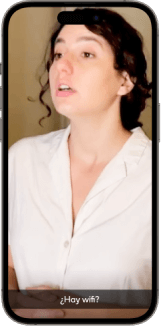
To support our work, we invite you to accept cookies or to subscribe.
You have chosen not to accept cookies when visiting our site.
The content available on our site is the result of the daily efforts of our editors. They all work towards a single goal: to provide you with rich, high-quality content. All this is possible thanks to the income generated by advertising and subscriptions.
By giving your consent or subscribing, you are supporting the work of our editorial team and ensuring the long-term future of our site.
If you already have purchased a subscription, please log in
What is the translation of "have a good trip!" in Spanish?
"have a good trip" in spanish.
- have a good trip!
- volume_up ¡Feliz viaje!
Translations
- open_in_new Link to source
- warning Request revision
Context sentences
English spanish contextual examples of "have a good trip" in spanish.
These sentences come from external sources and may not be accurate. bab.la is not responsible for their content.
- have a foot
- have a foul mood
- have a girlfriend
- have a go at
- have a go at someone
- have a good command of
- have a good day!
- have a good taste
- have a good time
- have a grandchild
- have a grandmother
- have a great time
- have a green thumb
- have a haircut
- have a headache
- have a heart of gold
- have a heart!
- have a husband
- have a hysterectomy
Do you want to translate into other languages? Have a look at our Czech-English dictionary .
Why register?
Enjoy an enhanced experience.
- Access all dictionaries for free
- Browse the whole site in any of 24 languages
- Translation tool with additional allowance
Spanish translation of 'Have a good trip!'
- Have a good trip!

Browse alphabetically Have a good trip!
- have a care, sir!
- have a heart!
- Have a nice time!
- have a safe flight!
- All ENGLISH words that begin with 'H'
Related terms of Have a good trip!
- have a good trip!
Wordle Helper

Scrabble Tools
Quick word challenge
Quiz Review
Score: 0 / 5
- Access the entire site, including the Easy Learning Grammar , and our language quizzes.
- Customize your language settings. (Unregistered users can only access the International English interface for some pages.)
- Submit new words and phrases to the dictionary.
- Benefit from an increased character limit in our Translator tool.
- Receive our weekly newsletter with the latest news, exclusive content, and offers.
- Be the first to enjoy new tools and features.
- It is easy and completely free !
have a good trip
- Diccionario
- Pronunciación
Haciendo que las experiencias educativas sean mejores para todos.
Aprendizaje de inmersión para 25 lenguas
Un mercado de millones de recursos creados por educadores
Certificación de lengua rápida, fácil y fiable
Juegos educativos divertidos para niños
Aprendizaje personalizado exhaustivo para la educación K-12
Tutores de confianza para más de 300 materias
Más de 35,000 hojas de ejercicios, juegos y planes de clase
Aprendizaje adaptativo para el vocabulario de inglés
You are using an outdated browser. Please upgrade your browser or activate Google Chrome Frame to improve your experience.
Important Spanish Travel Phrases (with Downloadable PDF)
Have you been dreaming about your upcoming vacation to Spain?
Eagerly awaiting your backpacking trek through South America?
Whatever the case, your trip to any Spanish-speaking country will be so much more fun and meaningful if you can communicate with locals .
But what kind of Spanish travel phrases do you even need to know?
Below are the essentials— the most common Spanish phrases for travel to help you upgrade your trip from “goodw” to “great.”
1. Basic Spanish Greetings and Phrases
2. basic spanish phrases for everyday use, 3. asking for directions in spanish, 4. spanish travel phrases for the hotel, 5. spanish travel phrases for the restaurant, 6. spanish phrases for the airport and ticket offices, 7. medical emergencies in spanish, 8. spanish phrases for having a bit of fun, and one more thing….
Download: This blog post is available as a convenient and portable PDF that you can take anywhere. Click here to get a copy. (Download)

Spanish-speaking countries are generally very polite and you must always be courteous and say “hello” and “how are you?”
Don’t worry about making mistakes. Most people will try their utmost to understand you and to make sure you understand them. Try your best and they will be happy to reciprocate!
- Buenos días — Good morning
- Buenas tardes — Good afternoon
- Buenas noches — Good evening
- ¿Cómo te llamas? — What’s your name? (informal)
- ¿Cómo se llama? — What’s your name? (formal)
- Me llamo… — My name is…
- Mucho gusto — Nice to meet you
- ¿Cómo estás? — How are you? (informal)
- ¿Cómo está? — How are you? (formal)
- Bien, gracias — Good, thank you
- Por favor — Please
- Gracias — Thank you
- Perdón — S orry
- ¿Habla inglés? — Do you speak English?
- No hablo español — I don’t speak Spanish
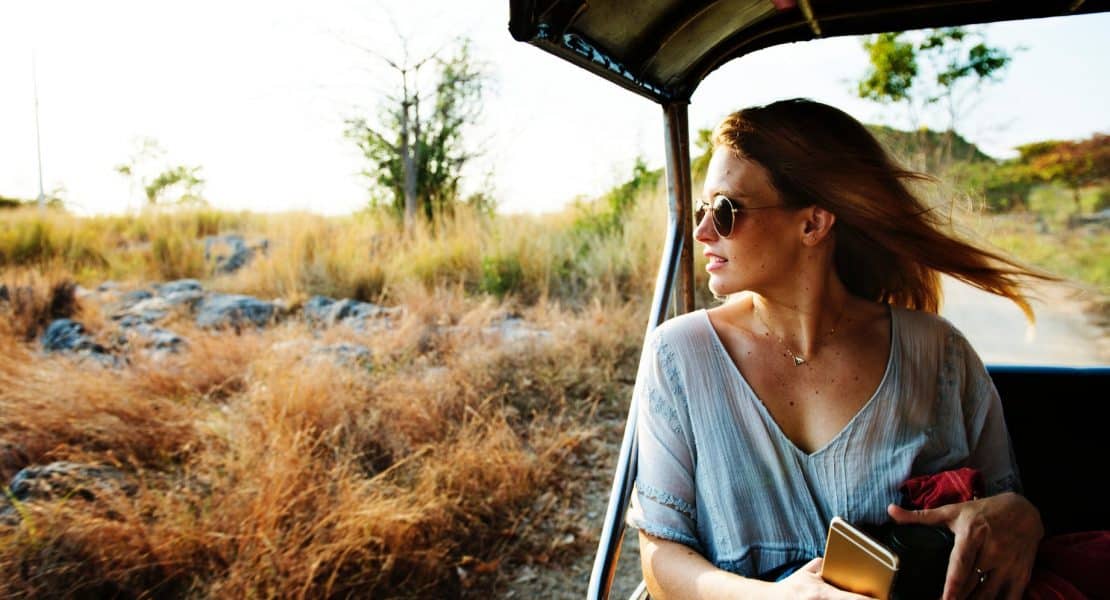
You can go far with some very easy-to-remember travel phrases and words.
You’ll likely use “I want,” “I like” and “Do you have…?” quite often. If you don’t know the noun, you can simply point at the object or show a photo.
You can also say a lot of things with very simple verbs we’re about to introduce. It may not be the sophisticated way you speak in English, but you will be understood.
- Quiero / No quiero — I want / I don’t want
- Me gustaría ; Quisiera — I would like (more polite)
- ¿Dónde está…? — Where is…? Since dónde ends in e and está starts with one, these two words flow into each other, almost like they were a single word.
- ¿Cuánto cuesta? — How much does it cost?
- ¿Qué hora es? — What time is it?
- ¿Tiene…? — Do you have…?
- Tengo / No tengo — I have / I don’t have
- Entiendo / No entiendo — I understand / I don’t understand
- ¿Entiende? — Do you understand?
- Quiero un boleto — I want a ticket
…un hotel — …a hotel
…un taxi — …a taxi
- No funciona — It doesn’t work
That last one is an all-purpose word . You can use this for a million circumstances! Just point at the shower or whatever and say “ ¡No funciona!”
What we’ve seen so far is basic survival Spanish, so even if you can only remember these words and phrases, they’ll still help a great deal.
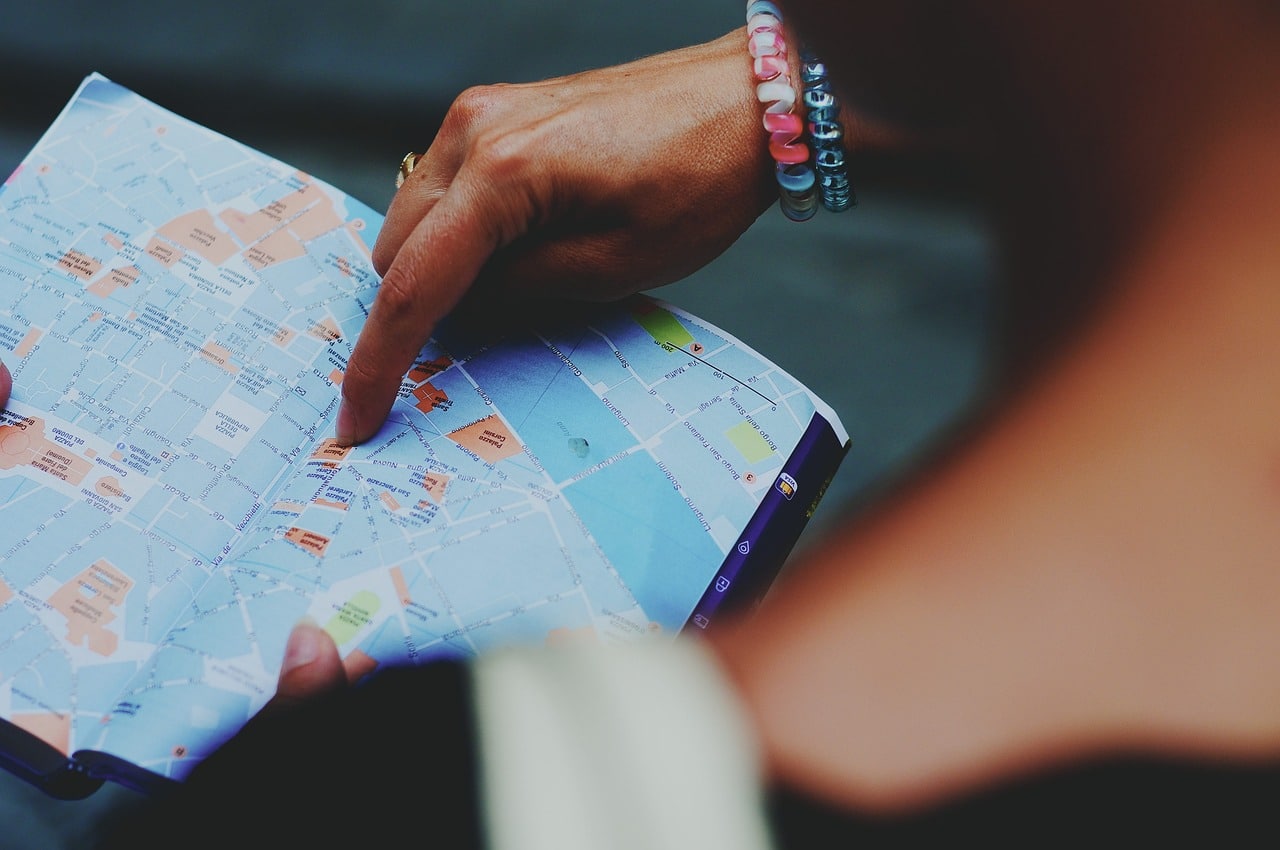
If you get a bit lost or unsure of how to get somewhere, “¿dónde está?” is the simplest way of asking for directions. Here are a few more phrases, locations and other directions in Spanish that will be helpful on your trip:
- ¿Dónde está la estación de ferrocarril? — Where is the railway station?
- ¿Dónde hay un restaurante? — Where is a restaurant?
- Un tren — A train
- La calle… — The street…
- Un banco — A bank
- El baño — The bathroom
- Busco un hotel — I’m looking for a hotel
- Necesito un hotel — I need a hotel
…un cuarto — …a room
…un cuarto con baño — …a room with a bathroom
- ¿Dónde hay una casa de cambio? — Where is the currency exchange?
- ¿Dónde está el banco? — Where is the bank?
- Dinero — Money
Once you have asked a question, someone will answer you in Spanish. Listen for these key words:
- A la derecha — To the right
- A la izquierda — To the left
- Derecho — Straight ahead
- En la esquina — At the corner
- A una cuadra — In one block
…dos cuadras — …two blocks
…tres cuadras — …three blocks
…cuatro cuadras — …four blocks
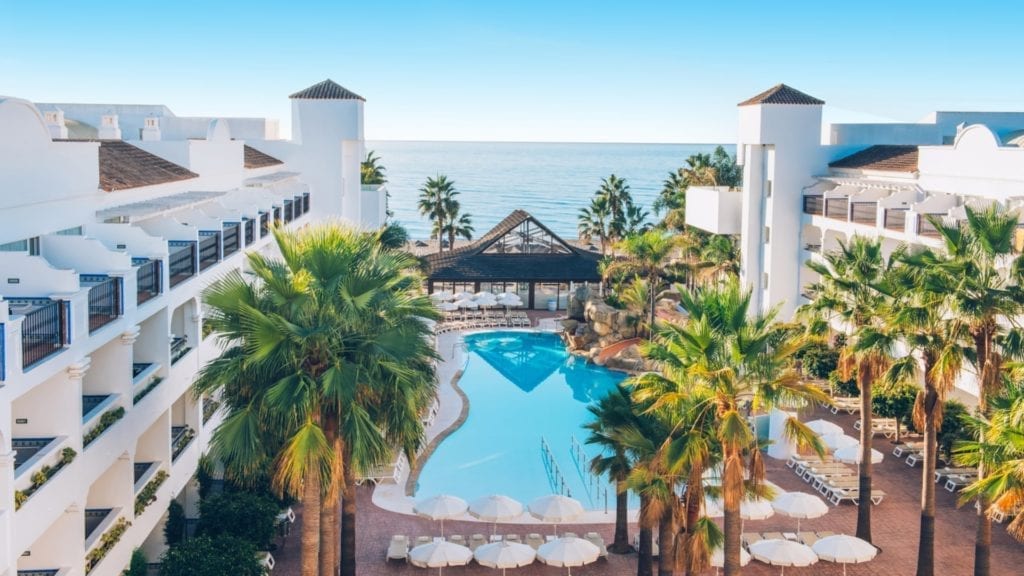
You’ve finally found your hotel and you’re ready to check in!
Staff at international chains will probably be able to communicate in English with you, but these phrases and questions will come in handy for local hotels, hostels, bed and breakfasts, etc.
These will also be helpful when you need to make adjustments to your reservation or are curious about other hotel amenities.
- Tengo una reserva a nombre de… — I have a reservation under the name of…
- Estadía de tres noches — Three-night stay
- Una habitación para dos personas — A room for two people
- Una habitación con una cama de matrimonio — A room with a double bed As you can see, habitación is a synonym of cuarto . You can use either term when booking a room.
- ¿Dónde está la piscina? — Where is the pool?
- ¿A qué hora es el desayuno? — What time is breakfast?
- ¿Puedo solicitar una salida tardía? — Can I request a late check-out?
- ¿Tiene servicio de habitaciones? — Do you have room service?
- ¿ Cuál es la contraseña de WiFi ? — What is the WiFi password?
- Una cama supletoria — An extra bed
- Vista al mar — Ocean view
- Vista a la ciudad — City view
- Un balcón — A balcony
- La terraza — The rooftop / terrace
- El gimnasio — The gym
- La playa — The beach
- El vestíbulo — The lobby

Probably the most useful travel phrases you will need are the ones you would use in a restaurant. Let’s go over some basic restaurant vocabulary in Spanish :
Ask for anything by using quiero or quisiera — “I want” or “I would like.” And remember to say por favor and gracias!
- Una mesa — A table
- Una mesa para dos — A table for two
…tres — …three
…cuatro — …four
- Un menú / Una carta — A menu
- Sopa — Soup
- Ensalada — Salad
- Hamburguesa — Hamburger
- Con salsa de tomate — With ketchup
…mostaza — …mustard
…tomate — …tomato
…lechuga — …lettuce
- Una entrada — An appetizer
- Un postre — Dessert
- Una bebida — A drink
- Agua — Water
- Vino tinto / Vino blanco — Red wine / White wine
- Cerveza — Beer
- Un café — Coffee
- ¡Señor! / ¡Señorita! — Mister / Miss (when calling a waiter or waitress)
- La cuenta — The check
- Una tarjeta de crédito — A credit card
- Una tarjeta de débito — A debit card
- Pagar en efectivo — Pay in cash
Note that many places in smaller towns still don’t take credit cards , so make sure you have enough cash with you.
You can ask if a place takes credit cards by using the noun with a question. For example, you can pull out your credit card and say: ¿Tarjeta de crédito? They will understand.
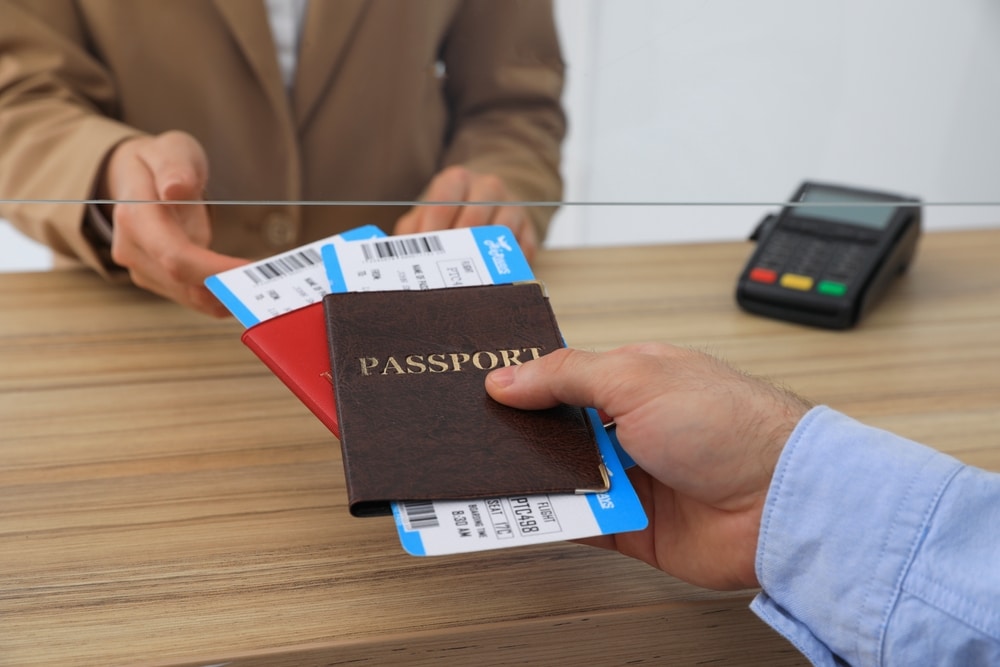
It’s time to soak in some culture ! Whether you want to go see a show, check out an art exhibit, watch a local movie or visit the next town (or country) over, you’ll need to buy some sort of ticket.
We’ll start with some airport-specific vocabulary —bearing in mind that many of these phrases are versatile and can be used in various situations—followed by more general vocabulary.
- Su pasaporte, por favor — Your passport, please
- Quisiera cambiar mi reserva — I would like to change my reservation
- ¿Podría elegir mi asiento? — Could I choose my seat?
- Quisiera cambiar mi asiento — I would like to change my seat
- Este es mi equipaje de mano — This is my carry-on luggage
- ¿Se ha cancelado el vuelo? — Has the flight been canceled?
- ¿Dónde está la terminal internacional? — Where is the international terminal?
- ¿Dónde está la puerta de embarque? — Where is the boarding gate?
- ¿A qué hora es el embarque? — What time is boarding?
Earlier we defined entrada as an “appetizer.” Entrada has multiple meanings related to “start” or “entry,” so you can also use it to say “ticket.”
- ¿Cuánto cuesta una entrada? — How much does a ticket cost?
- Dos boletos de ida y vuelta — Two roundtrip tickets
- ¿ Tiene un pase de un día ? — Do you have a one-day pass?
- ¿A qué hora sale el próximo tren ? — What time does the next train leave?
- ¿De qué plataforma sale? — Which platform does it leave from?
- ¿Qué puerta? — Which gate?
For more specific situations, here are some words and phrases you might need when purchasing tickets:
- El espectáculo — The show / performance
- El teatro — The theater
- La exposición — The exhibit
- El cine — The cinema
- Una película — A movie
- Un vuelo — A flight
- Viaje de ida — One-way trip
- Viaje de ida y vuelta — Return trip / round trip
- El asiento de pasillo — The aisle seat
- El asiento de ventanilla — The window seat
- La primera fila — The first row
La segunda fila — The second row
La tercera fila — The third row
La cuarta fila — The fourth row
Also, as you’ve likely noticed, for anything dealing with money or quantities, you’ll want to be familiar with numbers in Spanish .
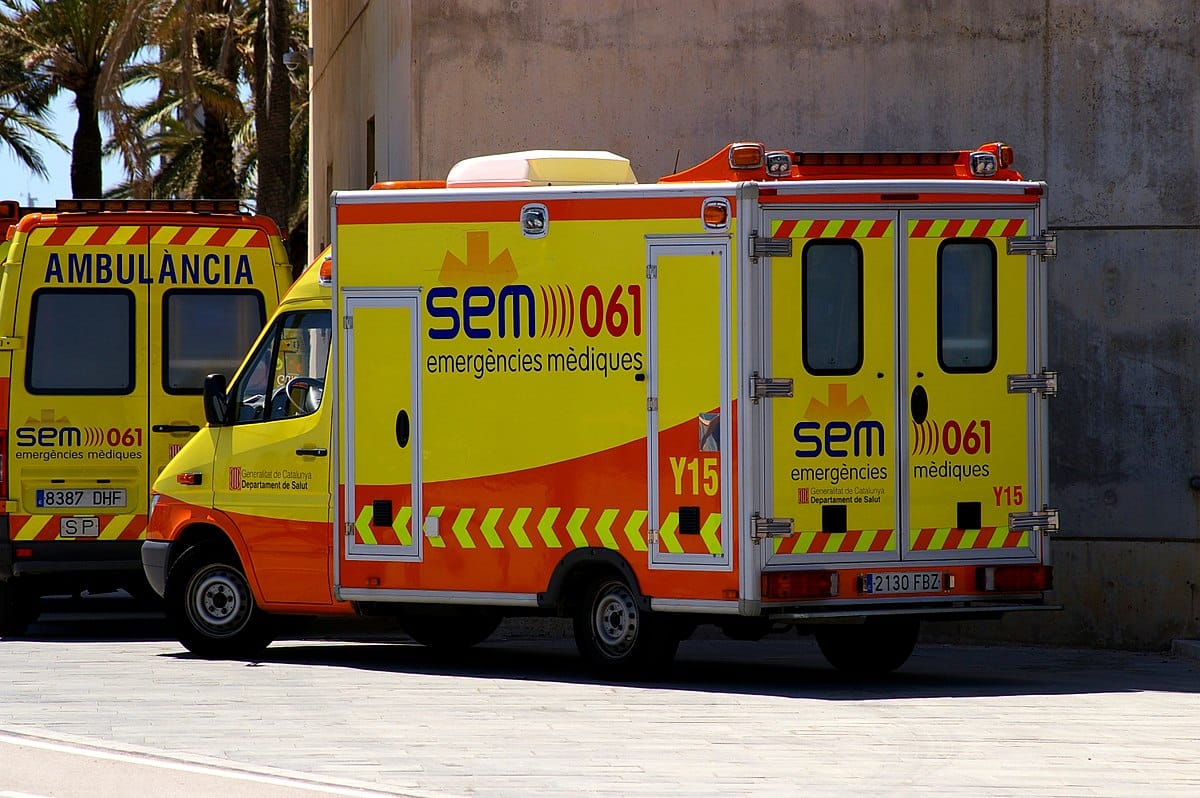
A smart traveler always comes prepared with some emergency over-the-counter meds. After all, you never know what could happen when you’re overseas.
But when those aren’t enough, these are the phrases that will help with your health-related concerns when in a Spanish-speaking country:
- ¿Dónde está la farmacia? — Where is the pharmacy?
- ¿Dónde está el hospital más cercano? — Where is the nearest hospital?
- Seguro de salud internacional — International health insurance
- No me siento bien — I feel sick / I don’t feel well
- ¿El doctor habla inglés? — Does the doctor speak English?
- ¿Necesito una receta? — Do I need a prescription?
- ¿Qué medicina necesito? — What medicine do I need?
- La cita médica — Doctor’s appointment
- La cita de seguimiento — Follow-up appointment
If you need help explaining your symptoms, these terms will help you out. With the exception of the last phrase, start off by saying tengo , followed by any of the below:
- Un resfriado — A cold
- Dolor de garganta — Sore throat
- Tos — Cough
- Fiebre — Fever
- Dolor de cabeza — Headache
- Dolor de estómago — Stomachache
- Dolor de espalda — Backache
- Resaca — Hangover
- Me gotea la nariz — I have a runny nose

Of course, a trip to a Spanish-speaking country wouldn’t be complete without a little ¡fiesta! (carnival; party). If you’re keen to hit the town, here are a few phrases to help you get your groove on.
- ¡Salud! — Cheers!
- ¿Hay algún bar por aquí? — Is there a bar around here?
- ¿Dónde están las discotecas? — Where are the clubs?
- ¿A qué hora abren las discotecas? — What time do the clubs open?
- ¿Me recomienda un lugar para bailar? — Can you recommend me a place to dance?
- ¿Quieres bailar conmigo? — Do you want to dance with me?
- ¡Bailemos! — Let’s dance!
FluentU takes authentic videos—like music videos, movie trailers, news and inspiring talks—and turns them into personalized language learning lessons.
You can try FluentU for free for 2 weeks. Check out the website or download the iOS app or Android app.
P.S. Click here to take advantage of our current sale! (Expires at the end of this month)

Try FluentU for FREE!
Do you feel more prepared for your trip now? Pack these Spanish travel phrases with the rest of your essentials and you’ll be sure to get the most from your vacation!
If you've made it this far that means you probably enjoy learning Spanish with engaging material and will then love FluentU .
Other sites use scripted content. FluentU uses a natural approach that helps you ease into the Spanish language and culture over time. You’ll learn Spanish as it’s actually spoken by real people.
FluentU has a wide variety of videos, as you can see here:

FluentU brings native videos within reach with interactive transcripts. You can tap on any word to look it up instantly. Every definition has examples that have been written to help you understand how the word is used. If you see an interesting word you don’t know, you can add it to a vocab list.

Review a complete interactive transcript under the Dialogue tab, and find words and phrases listed under Vocab .

Learn all the vocabulary in any video with FluentU’s robust learning engine. Swipe left or right to see more examples of the word you’re on.

The best part is that FluentU keeps track of the vocabulary that you’re learning, and gives you extra practice with difficult words. It'll even remind you when it’s time to review what you’ve learned. Every learner has a truly personalized experience, even if they’re learning with the same video.
Start using the FluentU website on your computer or tablet or, better yet, download the FluentU app from the iTunes or Google Play store. Click here to take advantage of our current sale! (Expires at the end of this month.)
Related posts:
Enter your e-mail address to get your free pdf.
We hate SPAM and promise to keep your email address safe


- Constructed scripts
- Multilingual Pages
Bon voyage / have a good journey in many languages
Jump to phrases
How to wish people a good or safe journey. The phrase, bon voyage, is used in English without change, though the pronunciation is quite like the French.
People who have contributed to this section
If you would like to make any corrections or additions to this page, or if you can provide recordings, please contact me .
http://www.nypl.org/branch/central/dlc/df/expressions/bonvoyage.html
Other phrases
Welcome | Hello | How are you? | Long time no see | What's your name? | Where are you from? | Pleased to meet you | Good morning | Good afternoon | Good evening | Good night | Goodbye | Good luck | Cheers! | Have a nice day | Have a nice weekend | Bon appetit | Bon voyage | Yes, No | Maybe | I don't know | Do you understand? | I understand | I don't understand | Please speak more slowly | Please say that again | Please write it down | Do you speak English? | Do you speak [your language]? | I'm learning [your language] | How do you say ... in [your language]? | Speak to me in [your language] | Excuse me | I would like ... | How much is this? | Sorry | Please | Thank you | Where's the toilet? | This gentleman/lady will pay for everything | Would you like to dance? | Do you come here often? | I miss you | I love you | Get well soon | Go away! | Leave me alone! | Help! | Fire! | Stop! | Call the police! | Merry Christmas | Happy New Year | Happy Easter | Happy Birthday | Congratulations | One language is never enough | My hovercraft is full of eels
You can support this site by Buying Me A Coffee , and if you like what you see on this page, you can use the buttons below to share it with people you know.

If you like this site and find it useful, you can support it by making a donation via PayPal or Patreon , or by contributing in other ways . Omniglot is how I make my living.
Get a 30-day Free Trial of Amazon Prime (UK)

- Learn languages quickly
- One-to-one Chinese lessons
- Learn languages with Varsity Tutors
- Green Web Hosting
- Daily bite-size stories in Mandarin
- EnglishScore Tutors
- English Like a Native
- Learn French Online
- Learn languages with MosaLingua
- Learn languages with Ling
- Find Visa information for all countries
- Writing systems
- Con-scripts
- Useful phrases
- Language learning
- Multilingual pages
- Advertising

bottom_desktop desktop:[300x250]
I hope you have a good trip
- Pronunciation
THE BEST SPANISH-ENGLISH DICTIONARY
Get more than a translation, written by experts, translate with confidence, spanish and english example sentences, examples for everything, regional translations, say it like a local.
Making educational experiences better for everyone.
Immersive learning for 25 languages
Marketplace for millions of educator-created resources
Fast, easy, reliable language certification
Fun educational games for kids
Comprehensive K-12 personalized learning
Trusted tutors for 300+ subjects
35,000+ worksheets, games, and lesson plans
Adaptive learning for English vocabulary

IMAGES
VIDEO
COMMENTS
Pásatelo bien: This informal expression, commonly used in Spain, translates to "have a good time." For example: Laura, pásatelo bien en tu viaje a Madrid. ¡Disfruta las tapas y no dejes de visitar el Prado! Que tengas un buen viaje: Similar to "buen viaje," this expression is used in some Latin American countries and conveys the same meaning.
1. (set phrase) a. buen viaje. Have a good trip! We'll miss you! ¡Buen viaje! ¡Te extrañaremos! 2. (set phrase; used to address one person) a. que tengas un buen viaje. A word or phrase used to refer to the second person informal "tú" by their conjugation or implied context (e.g., How are you?).
Here are some formal ways to wish someone safe travels: 1. Que tengas un buen viaje. Example: María, que tengas un buen viaje a Madrid. Llámame cuando llegues. (María, have a good trip to Madrid. Call me when you arrive.) 2. Que tenga un feliz viaje.
Translate Good trip. See authoritative translations of Good trip in Spanish with example sentences and audio pronunciations.
A word or phrase used to refer to the second person formal "usted" by their conjugation or implied context (e.g., usted). (formal) (singular) Have a good trip! - Thank you, Mrs. Jimenez.¡Que tenga un buen viaje! - Gracias, Sra. Jiménez. 2. (used to address multiple people) a. ¡Buen viaje!
The Spanish Equivalent: "Buen viaje". The phrase "have a good trip" is commonly expressed in Spanish as "buen viaje.". This straightforward expression is used to wish someone a pleasant journey or a successful trip. It translates directly to "good trip" in English. By using this phrase, you can extend your positive wishes to ...
1. ¡Buen viaje! The most common and straightforward way to say "Have a good trip" in Spanish is by using the phrase "¡Buen viaje!". This simple expression is widely understood and used across Spanish-speaking countries. It directly translates to "Good trip" and is suitable for any situation, whether you're bidding farewell to a ...
Mi maleta está pesada/ liviana/ llena/ vacía. My suitcase is heavy/ light/ full/ empty. No me cabe la ropa en la maleta. My clothes don't fit in my suitcase. Necesito otro bolso/otra maleta. I need another bag/suitcase. En el aeropuerto. At the Airport. If you're traveling, you're probably going to leave from and arrive at an airport.
Translations of "have a good trip" into Spanish in sentences, translation memory. Declension Stem. Match words. Have a good trip, ladies. Le deseo a Uds. Señoras un buen viaje. OpenSubtitles2018.v3. Have a good trip, Ýrfan Abi. Buen viaje, Ýrfan Abi.
How to say "Have a good trip" in Spanish (Ten un buen viaje) Speechling. Free Language Learning Tools. Free Audio Dictionary. Have a good trip (Ten un buen viaje)
Learn how to say it just like a native:https://speechling.comLink to this sentence:https://speechling.com/how-to/how-to-say-have-a-good-trip-in-spanish-1131M...
Discussions about 'Have a good trip' in the English Only forum Go to Preferences page and choose from different actions for taps or mouse clicks. See Google Translate's machine translation of 'Have a good trip'.
12 Spanish travel phrases for the hotel. Busco un hotel. — I'm looking for a hotel. Yo necesito un hotel / un cuarto / un cuarto con baño. — I need a hotel / a room / a room with a bathroom. Una habitación para dos personas. — A room for two people. Yo tengo una reserva a nombre de…. — I have a reservation under the name of….
Learn the phrase ¡buen viaje! and other useful expressions for travel in Spanish with Memrise. Watch videos, chat with MemBot and practice speaking with AI language partner.
have a good trip! have a grandchild. have a grandmother. have a great time. have a green thumb. have a haircut. have a headache. have a heart of gold. have a heart!
Spanish Translation of "HAVE A GOOD TRIP!" | The official Collins English-Spanish Dictionary online. Over 100,000 Spanish translations of English words and phrases. TRANSLATOR
Traduce have a good trip. Mira 4 traducciones acreditadas de have a good trip en español con oraciones de ejemplo y pronunciación de audio. Aprender inglés. Traductor. Vocabulario. Pronunciación. Acceder. Resultados posibles: have a good trip-buen viaje.
5. Spanish Travel Phrases for the Restaurant. 6. Spanish Phrases for the Airport and Ticket Offices. 7. Medical Emergencies in Spanish. 8. Spanish Phrases for Having a Bit of Fun. Download: This blog post is available as a convenient and portable PDF that you can take anywhere.
Arabic. (Modern Standard) happy journey (riḥlah saʿīdah) رحلة سعيدة. successful journey (riḥlah muwaffaqah) رحلة موفق. Arabic. (Moroccan) Have a peaceful trip (ṭṭreq ssalama) طريق السلامة. Aragonese. Buen viache.
Spanish Translation. ten un buen viaje. More Spanish words for have a good trip. tener un buen viaje. have a good trip. Find more words!
A word or phrase used to refer to the second person formal "usted" by their conjugation or implied context (e.g., usted). I hope you have a good week; see you in two weeks.Espero que tenga un buen viaje; nos vemos en dos semanas. I hope you have a good trip. Have fun!Espero que tengan un buen viaje. ¡Pásenla bien!